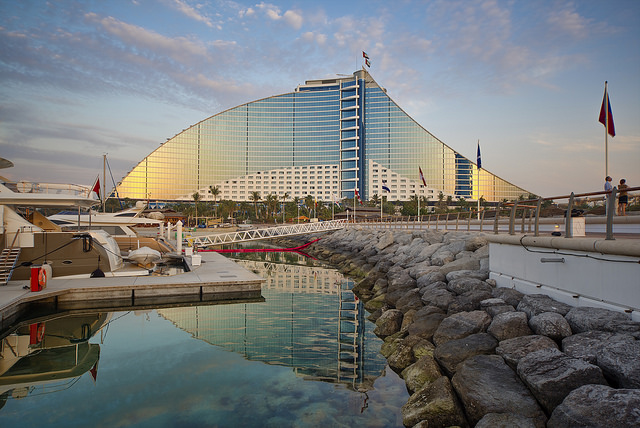What makes Dubai a safe haven for the rich

Experts tackle what makes Dubai attractive, especially when it comes to business ownership, inheritance, taxes
Asics shoes | nikeIt's been said that many of the world's rich jet setters and uber wealthy individuals choose to park their money in Dubai's glitzy skyscrapers.
There may have been a slight setback of late, but analysts said that foreign money is still pouring in. In fact, Dubai is increasingly being considered as a safe haven for the world’s growing high-net-worth population.
The emirate’s local tax regime, robust foreign trade, international fiscal relations and legal framework that allows foreigners 100 per cent business ownership -- and its global position as a travel hub -- are just some of the reasons that make Dubai an ideal destination for the super-rich.
Dubai is also being credited for recently making a landmark move by setting up a wills and probate registry that works in favour of non-Muslims when it comes to the distribution of their UAE-based assets and properties upon their death.
“Dubai is seen locally as a safe haven for individuals from the rest of the Gulf Cooperation Council (GCC) and other Middle Eastern countries, but also, increasingly as an alternative jurisdiction for wealthy high-net worth families and their investments from around the world,” Deloitte said in its latest analysis.
Booster legislation
According to Walid Chiniara, partner and Deloitte private leader in the Middle East, the UAE is going through certain legislations to boost foreign investor confidence.“Efforts are being made in government to amend and update some of the other commercial and private legislation in the rest of the country, so as to attract more foreign investment into the UAE, which it is hoped will increase exponentially in the run-up to Dubai’s hosting of Expo 2020,” Chiniara added.
Dubai is home to a significant number of millionaires or high-net-worth individuals.
According to a report by Knight Frank, Dubai is the eighth most important city to ultra-high-net-worth individuals in 2015 alone, ahead of Zurich, Geneva, Moscow, Munich, Los Angeles and other major cities in the world.
The report took into account the quality of life in key cities and a host of other indicators to come up with the ranking.
Andrew Prince, financial planner at deVere Acuma, noted that Dubai’s ability to do well amid trying times and the introduction of a wills registry for non-Muslims, are some of the emirate’s strong and attractive points.
“Having been privileged to live in this great country for the past six years, I’ve witnessed Dubai’s coming of age both in terms of bouncing back from the global financial crisis to the advent of DIFC Wills for non-Muslims," Prince toldGulf News:
"A combination of these and many other factors make Dubai a good destination for wealthy individuals from around the world to have the confidence to invest in the region via property,” he added toldGulf News.
“While global taxation is on the increase with greater transparency coming into effect in 2017, the region offers a comparative safe haven for some of their wealth as part of an overall portfolio."
Investments in stocks, mutual funds and other more liquid assets, while advised here, is often held in more established financial jurisdictions, but I predict, particularly with Sharia compliant investments, that more will be held onshore as part of Dubai’s drive to be a major financial hub on the global stage.”
Family, free zones
Deloitte also noted that the Dubai International Financial Center (DIFC) was an early proponent of the concept of the Single Family Office (SFO) and the first jurisdiction in the Middle East to define a family office in legal terms.“Legislation relating to SFOs which recognizes the unique requirements of family offices and their limited public liability has been in place since 2008. Based in the DIFC means family offices can benefit from the robust legal and regulatory framework, and highly qualified and experience professionals.”
Foreigners aren’t supposed to own more than 49 per cent of a business in Dubai, but thanks to the free zones and special economic zones (SEZs), non-nationals can enjoy 100 per cent ownership.
“Dubai has several free zones and special economic zones in which the rules of law can be slightly different, which makes them of interest to internationally mobile families,” Deloitte said.
“Probably the most well-known of all the SEZs is the [DIFC]. Established in 2002, and allowing foreigners to own 100 per cent of DIFC entities, it is home to many local and international wealth management and private client service providers.”
Local Tax
Dubai does not collect tax on income, capital gains, gifts, wealth or inheritance. “Clearly, this makes Dubai a very desirable location for those looking for gross roll-up of income and tax-free gains.”“This is particularly so for those individuals who would otherwise be subject to withholding taxes [for example] under the EU Savings Directive, or the various Swiss agreements.”
Inheritance law
There used to be some confusion regarding the distribution of inheritance of foreigners living in Dubai.
Many people think that when a non-Muslim foreigner dies, whatever he owns in the UAE, including bank balances, businesses or cars, would be distributed according to the Sharia law.
To sort things out, and to “provide comfort” to investors, a Wills & Probate Registry was set up in May last year.
According to Deloitte, the registry covers the “devolution” of assets held in Dubai and “intends to provide assurance that Sharia law will not govern” the distribution of these assets.
“For now, assets held by non-Muslims outside of the emirate of Dubai will still be at risk of being subject to Sharia law.”
Based on the data provided by the Dubai Land Department, the emirate's property market saw Dh267 billion in investor money through more than 60,000 transactions -- an increase of 8 per cent - last year.
Some real estate agents, however, reported that there has been a decline in the number of investor enquiries.
credit to Gulf News
